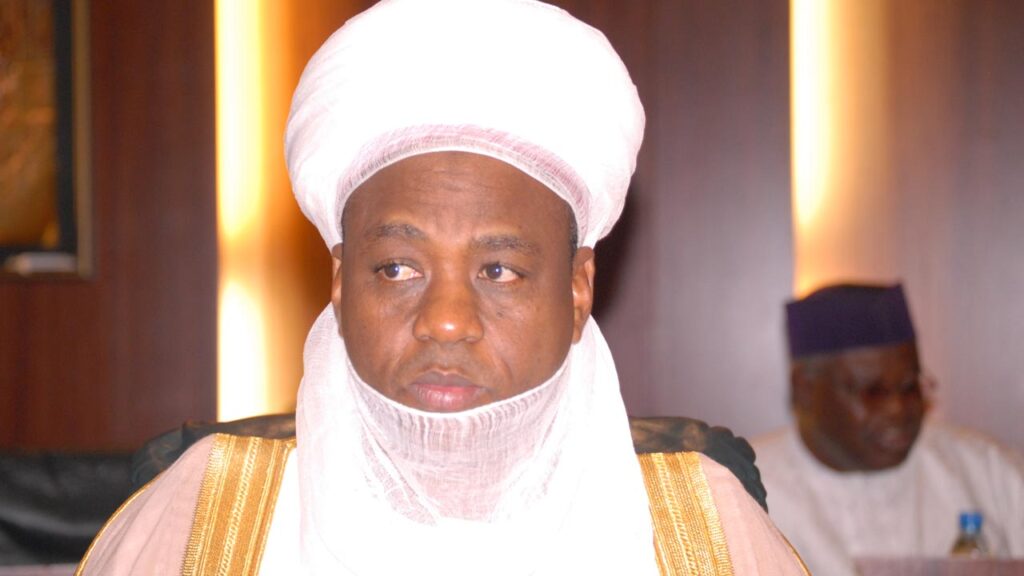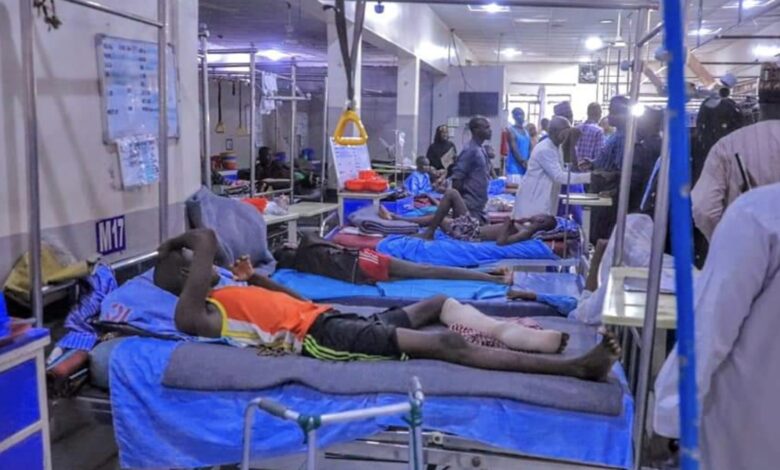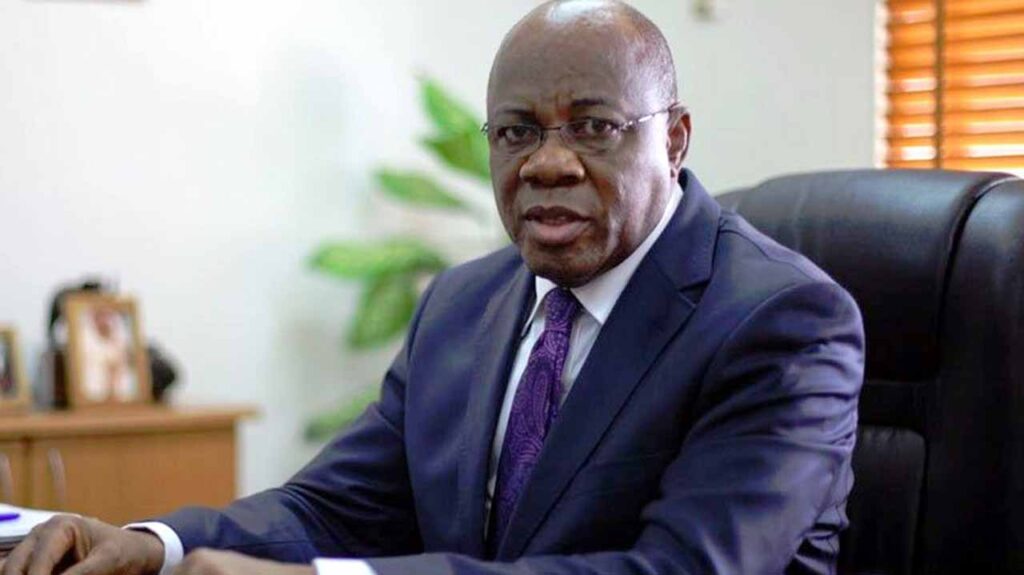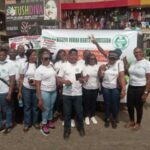
• Lagos, Osun, Ekiti, FCT paid N923m out of N2.7b estimated reward nationwide
• 13 out of 28 states yet to submit probe panel report to Rights Commission
• Civil society groups, lawyers decry situation
Over three years after the Federal Government directed states to establish judicial panels of inquiry and compensate EndSARS’ victims, a total of 25 states have yet to comply or put closure to proven cases of injustices.
Besides Lagos, Osun, Ekiti and the Federal Capital Territory (FCT) have paid compensation of N923 million, the balance of N1.77 billion in estimated compensation is yet to get to victims in the other 25 states.
It will be recalled that in the aftermath of the October 2020 nationwide protest against the defunct Special Anti-Robbery Squad (SARS), the FG through the National Economic Council (NEC), had directed states to probe allegations of human rights abuses against the defunct SARS of the Nigeria Police and other police brutalities, make recommendations for prosecution of offenders and compensate victims in their states.
A total of 28 states and FCT accepted the Federal Government’s directive. No panel was established in states like Yobe, Borno, Jigawa, Kano, Kebbi, Sokoto, and Zamfara. Only three states and FCT paid victims, but none prosecuted the accused.
For instance, the Osun state government presented cheques of N53.3 million as compensation to victims. Lagos paid N420 million to victims, Ekiti paid N21.3 million, while Abuja paid N429 million in compensation to victims of injustice.
However, out of the 29 sub-nationals that set up panels, only 16 have submitted reports to the National Human Rights Commission (NHRC), the body charged with collating details of rights abuses and ensuring compensation to victims.
Recall that the panels were formed in response to one of the requests made by #EndSARS protesters, who took to the streets across many states in October 2020 to demand an end to police brutality, extrajudicial killings, harassment, and intimidation of citizens.
The states that set up the panels include Taraba, Nasarawa, Enugu, Ebonyi, Benue, Cross River, Abia, Imo, Akwa Ibom, Rivers and Adamawa. Others include Katsina, Kogi, Kwara, Ekiti, Osun, Ogun, Lagos, Ondo, Edo, Delta, Bayelsa, Anambra, Bauchi, Niger, Oyo, Kaduna, Gombe and the Federal Capital Territory (FCT). In total, N2.7 billion was estimated in compensation.
In the panel reports, the Benue state government recommended N304.5 million, while Plateau recommended a total of N152 million. The Ebonyi panel recommended N189 million, while in Delta, N102.45 million was awarded.
Anambra State panel headed by retired Justice Veronica Ume, recommended between N5 million and N10 million as compensation to the families of dead victims; Nasarawa N480 million and Abia earmarked N511 million. Unfortunately, some states set up panels but never made their reports public. Such states include Bauchi, Gombe, Enugu and Akwa Ibom.
The implication is that their recommendations, including financial compensation, are shrouded in secrecy. Curiously, the Rivers and Katsina states panels’ submitted reports that did not disclose the amount awarded for compensation.
The Guardian’s inquiry revealed that the states are contending that the FG must pay, since it directed the setting up of the panels, adding that the Police, which is the culprit, is also a federal agent.
The executive secretary of the NHRC, Anthony Ojukwu (SAN), reckons with this argument. He said: “The violators sometimes are Police officers, who are Federal Government workers.
“The purpose of decentralising the setting up of the #EndSARS panels was because the indigenes of these states were involved, and the police officers were serving these states when those violations took place.
“It is not that the Federal Government is shying away from responsibilities, it has directed that the investigations be done, which I expect the state governments to do, conclude and report to the FG.”
According to him, state governments ought to pay the recommended compensations and find a way to recover what they have spent from the FG. “That is easier and cheaper,” he said. He added that just as the state constructs federal roads in their states because their people use them and then claim the costs from the FG, they could do so.
“Why is this one not done like that? It will help to promote peace in the states. The FG is not denying that police officers, who are its agents, committed the offences in question, but the states ought to settle the matter since it happened in their domains,” he said.
According to him, while the states pay the compensations, the Police Service Commission (PSC), another agent of the FG, will handle disciplinary recommendations in the reports, as the sole organ responsible for discipline, appointment, and promotion of the police officers.
Executive Director of Sterling Law Centre, Deji Ajare, decried the non-payment of compensations to victims of police brutality, whose cases have been adjudged meritorious by competent judicial panels.
“It is very troubling and disheartening that after three years, victims are still seeking justice. It is extremely disappointing that three years have passed since the #EndSARS protests, and yet many states have not released the reports of the panels or provided compensation to the victims and their families,” he lamented.
According to Deji, the establishment of these panels was intended to be a crucial step towards addressing the issue of police brutality and seeking justice for the victims. The promise, he said, was made to the Nigerian people that their voices would be heard and that accountability would be ensured.
“However, the failure to release the reports and compensate the victims undermines the entire purpose of these panels and creates a sense of injustice and distrust in the system,” he argued.
He stressed that the release of the panel reports is essential for transparency and accountability. His words: “It allows the public to understand what transpired behind closed doors, who was responsible for the acts of brutality, and what actions should be taken against those found guilty.
“The reports can also serve as a valuable tool in implementing reforms within the police and other law enforcement agencies, as they highlight the systemic issues and shortcomings that need to be addressed.
“Compensation to victims and their families is not only a matter of justice but also a means to help them rebuild their lives and recover from the traumatic experiences they endured. It is disheartening to see that this has been neglected in most states, leaving the victims and their families without the support they need.
“It is imperative for the Nigerian government, specifically the states that have not released the reports and paid compensation, to take immediate action.”
They, he stressed, must prioritise the rights and well-being of their citizens by ensuring that the reports are made public, hold perpetrators accountable, and appropriate compensation provided. This, he noted, will not only restore faith in the justice system but also send a strong message that human rights violations would not be tolerated.
“Overall, it is essential that the Nigerian government fulfils its commitment to justice and accountability by releasing the reports of the panels and compensating the victims.
“Failure to do so not only perpetuates a culture of impunity but also hinders the progress towards a more just and inclusive society,” Ajare said.












